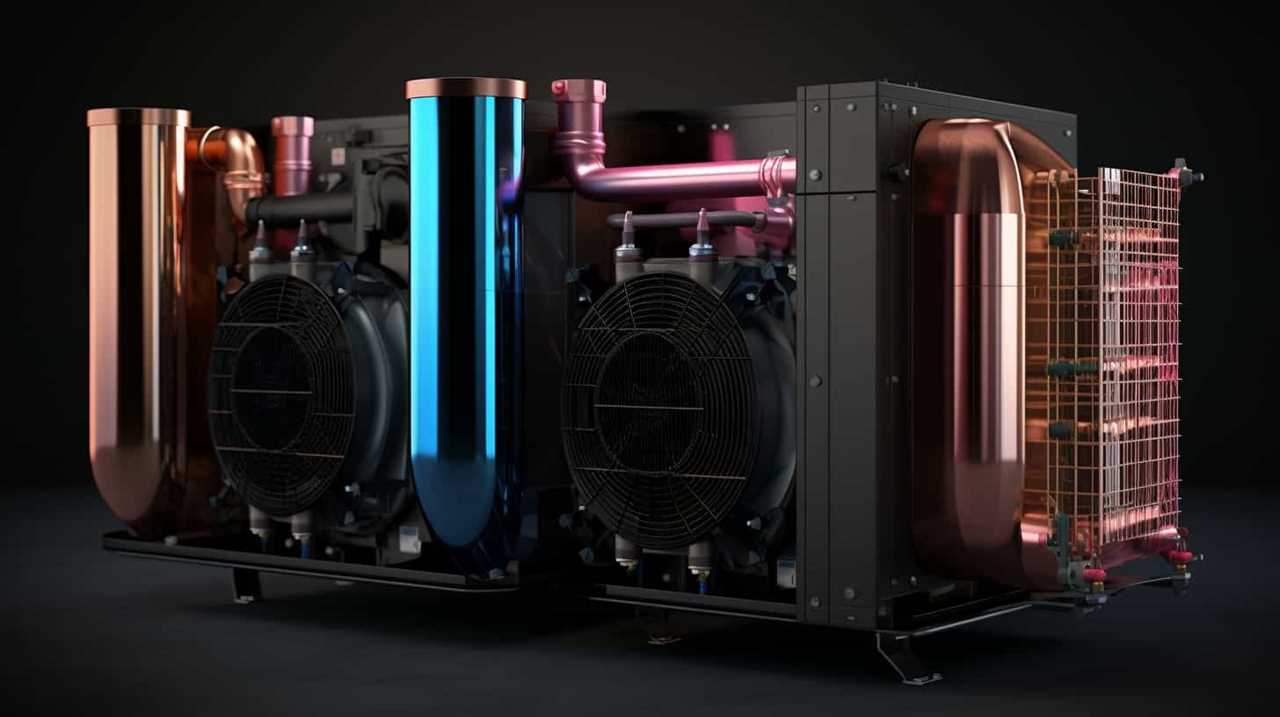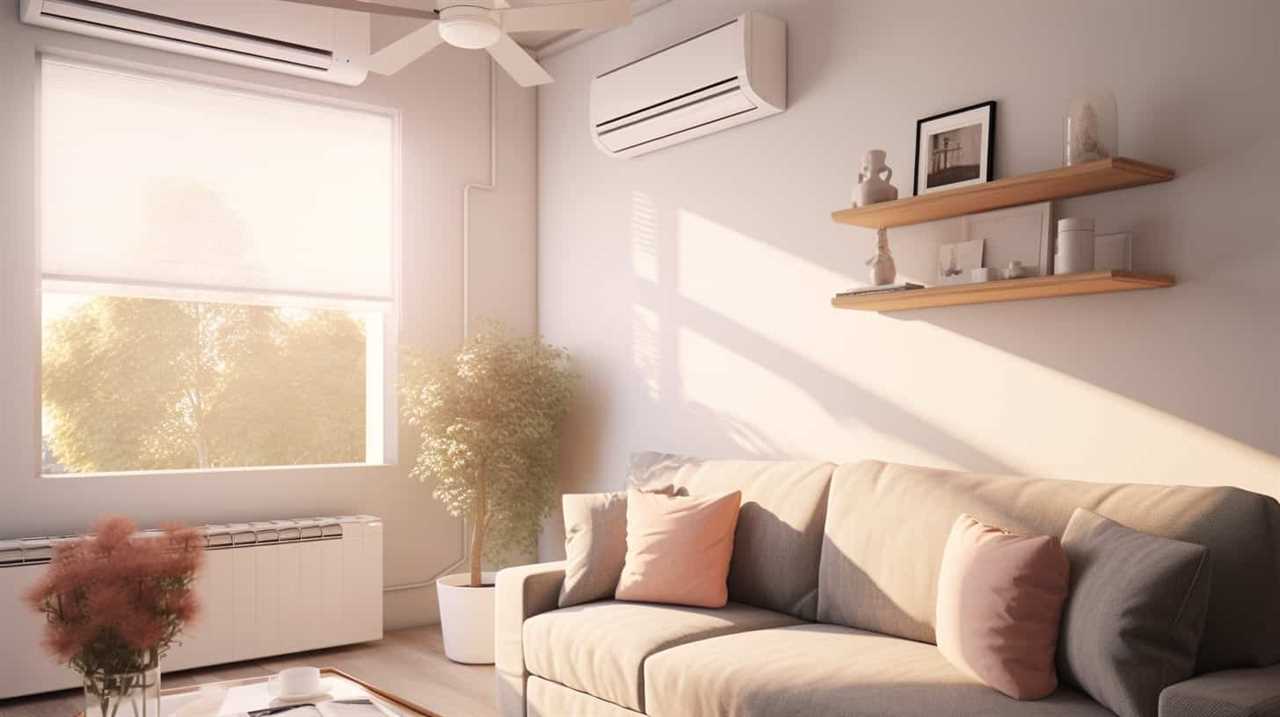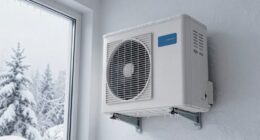We’re here to provide you with the ultimate guide to heat pumps – the next big thing in home heating.
In this informative article, we’ll delve into the benefits of heat pumps, how they work, and how to choose the right one for your home.
Discover how heat pumps can save you energy and money, and learn how to overcome common challenges during installation and maintenance.
Join us as we explore the innovative world of heat pumps and their potential to revolutionize residential heating.
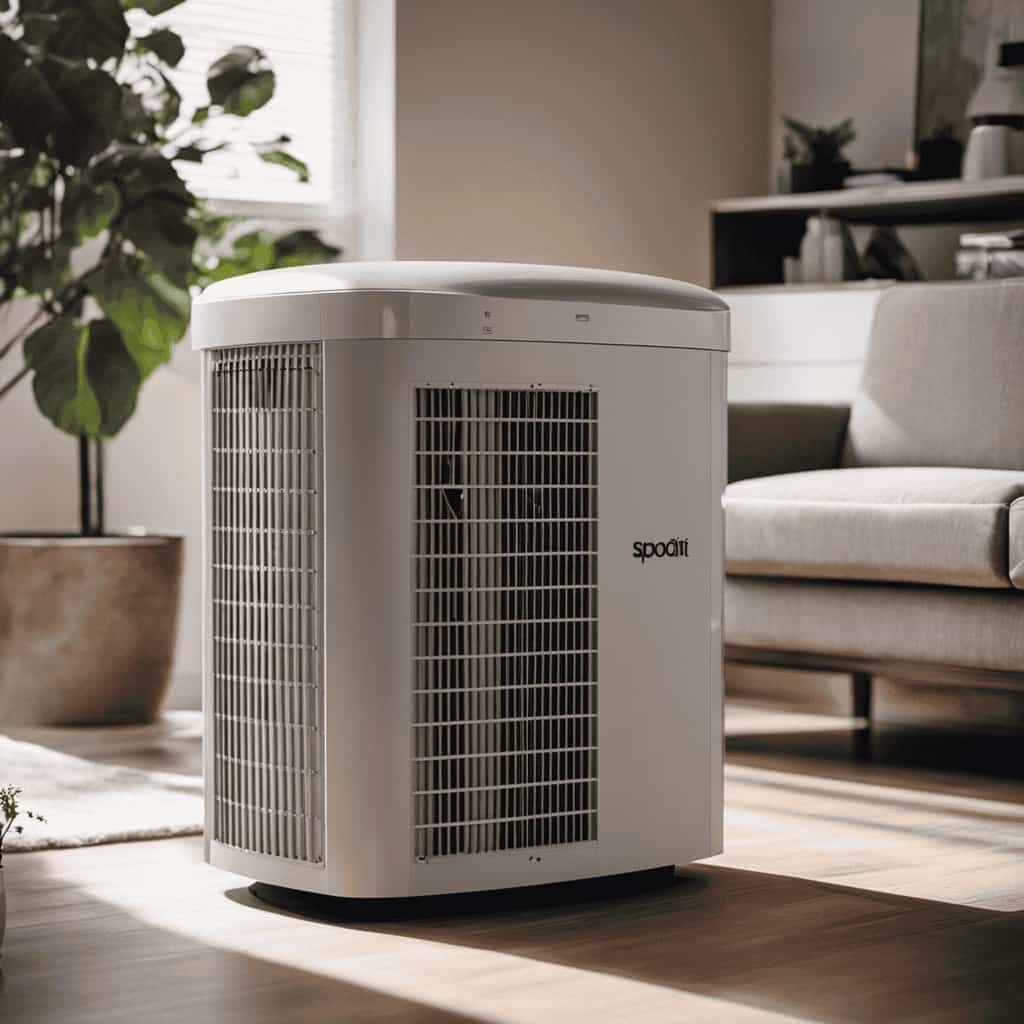
Key Takeaways
- Heat pumps offer significant energy savings and can lower utility bills while reducing carbon emissions.
- They provide excellent heating efficiency and can also cool indoor spaces.
- Choosing the right heat pump involves considering factors such as size, efficiency, and compatibility with existing heating systems.
- Heat pumps are highly energy efficient, resulting in lower energy consumption, reduced utility bills, and a lower environmental impact compared to other heating systems.
Benefits of Heat Pumps for Residential Heating
What are the benefits of heat pumps for our residential heating needs?
Heat pumps offer numerous advantages that make them an innovative and cost-effective solution for heating our homes. One major benefit is the potential for significant energy savings. Heat pumps operate by transferring heat from the outdoor air or ground into our homes, rather than generating heat from scratch like traditional heating systems. This process consumes less energy, resulting in lower utility bills and reduced carbon emissions.
Additionally, heat pumps provide excellent heating efficiency, allowing for a comfortable indoor environment while minimizing energy waste. They also offer the flexibility of providing both heating and cooling functions, eliminating the need for separate systems. With these advantages, heat pumps are a cutting-edge solution that maximizes savings and promotes sustainable living.
Now, let’s delve into a comprehensive overview of how heat pumps work.

How Heat Pumps Work: A Comprehensive Overview
To understand how heat pumps work, we need to examine their process of transferring heat and their ability to provide both heating and cooling functions. Heat pump technology operates on the principle of extracting heat from one source and transferring it to another.
In the case of residential heating, heat pumps extract heat from the outdoor air, ground, or water, and transfer it indoors to provide warmth. This process is achieved through the use of refrigerants that absorb and release heat as they cycle through the system.
It’s important to note that heat pumps are capable of reversing this process, allowing them to cool indoor spaces as well. One of the key advantages of heat pump technology is its low environmental impact. By utilizing renewable energy sources, heat pumps significantly reduce greenhouse gas emissions compared to traditional heating systems.
Transitioning to heat pump technology is a step towards a more sustainable and energy-efficient future.

Now that we understand how heat pumps work, let’s delve into the next section on choosing the right heat pump for your home.
Choosing the Right Heat Pump for Your Home
When selecting a heat pump for our home, it’s important to consider factors such as size, efficiency, and compatibility with our existing heating system. To help us make an informed decision, let’s take a look at a table comparing different heat pump brands and their installation requirements.
| Heat Pump Brand | Size (tons) | Efficiency (SEER) | Compatibility |
|---|---|---|---|
| Brand A | 2 | 18 | Gas Furnace |
| Brand B | 3 | 20 | Electric |
| Brand C | 2.5 | 19 | Oil Furnace |
| Brand D | 4 | 22 | Electric |
| Brand E | 3.5 | 21 | Gas Furnace |
When evaluating heat pump brands, it’s crucial to consider the size of the unit, as it should be suitable for the square footage of our home. Additionally, we should prioritize energy efficiency, as indicated by the Seasonal Energy Efficiency Ratio (SEER). Finally, compatibility with our existing heating system is essential to ensure seamless integration. By considering these factors and referring to the table, we can select the right heat pump that meets our requirements and promotes energy-efficient heating in our home.
Energy Efficiency and Cost Savings With Heat Pumps
We can achieve significant energy efficiency and cost savings by utilizing heat pumps in our homes. Heat pumps work by transferring heat from one area to another, rather than generating heat through combustion like traditional heating systems. This process requires less energy, resulting in lower energy consumption and reduced utility bills.
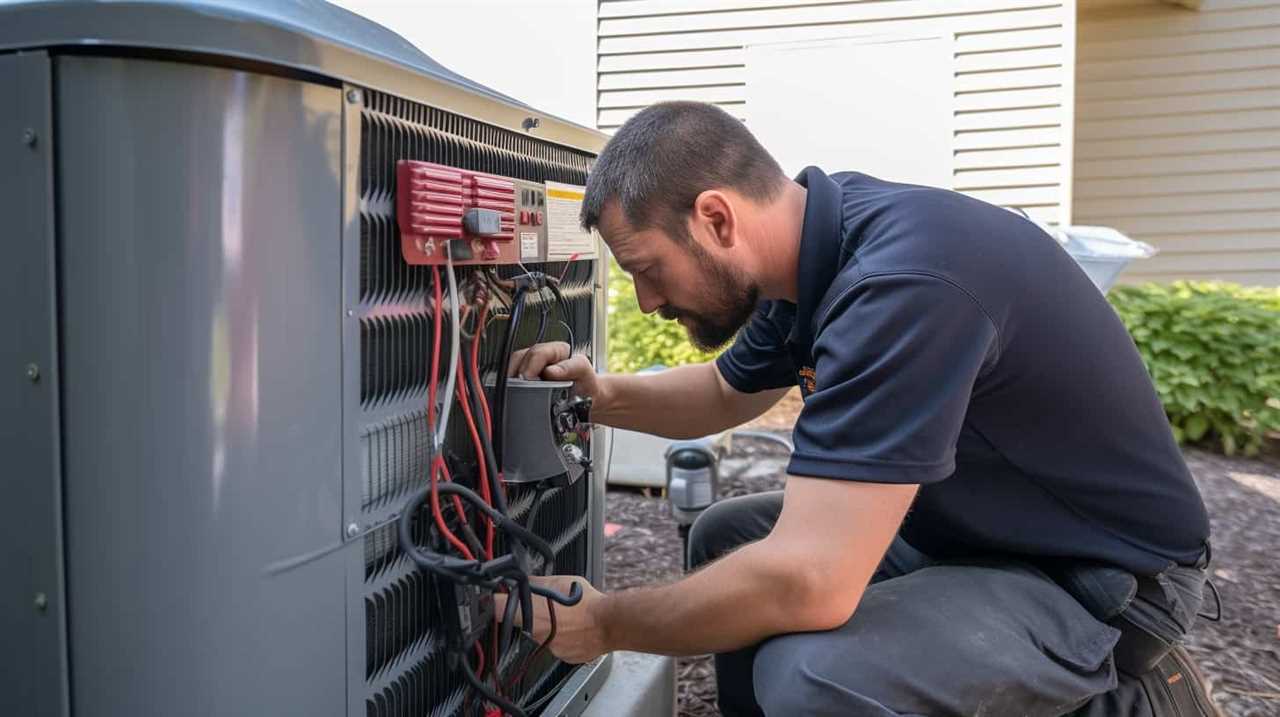
When compared to other heating systems, heat pumps consistently demonstrate higher energy efficiency and lower environmental impact. According to energy consumption comparisons, heat pumps can save up to 50% on heating costs compared to electric resistance heaters. Additionally, an environmental impact assessment shows that heat pumps produce fewer greenhouse gas emissions, contributing to a more sustainable future.
Overcoming Common Challenges With Heat Pump Installation and Maintenance
We can address the challenges associated with heat pump installation and maintenance by implementing effective strategies and solutions.
One common challenge faced during installation is ensuring proper sizing and placement of the heat pump unit. It’s crucial to accurately calculate the heating and cooling loads of the space to determine the appropriate size of the unit. Additionally, the location of the unit should be chosen carefully to optimize its performance and minimize noise.
Another challenge is troubleshooting any issues that may arise during operation. By regularly inspecting and maintaining the heat pump, potential problems can be identified and resolved early on. Common troubleshooting tips include checking for refrigerant leaks, cleaning or replacing air filters, and inspecting electrical connections.

Frequently Asked Questions
Can Heat Pumps Be Used for Cooling as Well as Heating in Residential Settings?
Yes, heat pumps can be used for cooling as well as heating in residential settings. This offers several advantages, such as energy efficiency, cost savings, and reduced environmental impact, making it an innovative solution for residential cooling.
Are There Any Government Incentives or Rebates Available for Installing a Heat Pump in My Home?
Yes, there are government incentives and rebates available for installing a heat pump in our home. These incentives and rebates can help offset the cost of installation and make it more affordable for us.
What Is the Average Lifespan of a Heat Pump and How Often Does It Require Maintenance?
The average lifespan of a heat pump is around 15-20 years, but with regular maintenance, it can last even longer. Maintenance should be done at least once a year to ensure optimal performance and efficiency.
Can Heat Pumps Be Used in Extremely Cold Climates Where Temperatures Regularly Drop Below Freezing?
Yes, heat pumps can be used in extremely cold climates where temperatures regularly drop below freezing. Despite the cold, heat pump efficiency remains high, and they offer numerous benefits in cold climates such as cost savings and environmental friendliness.
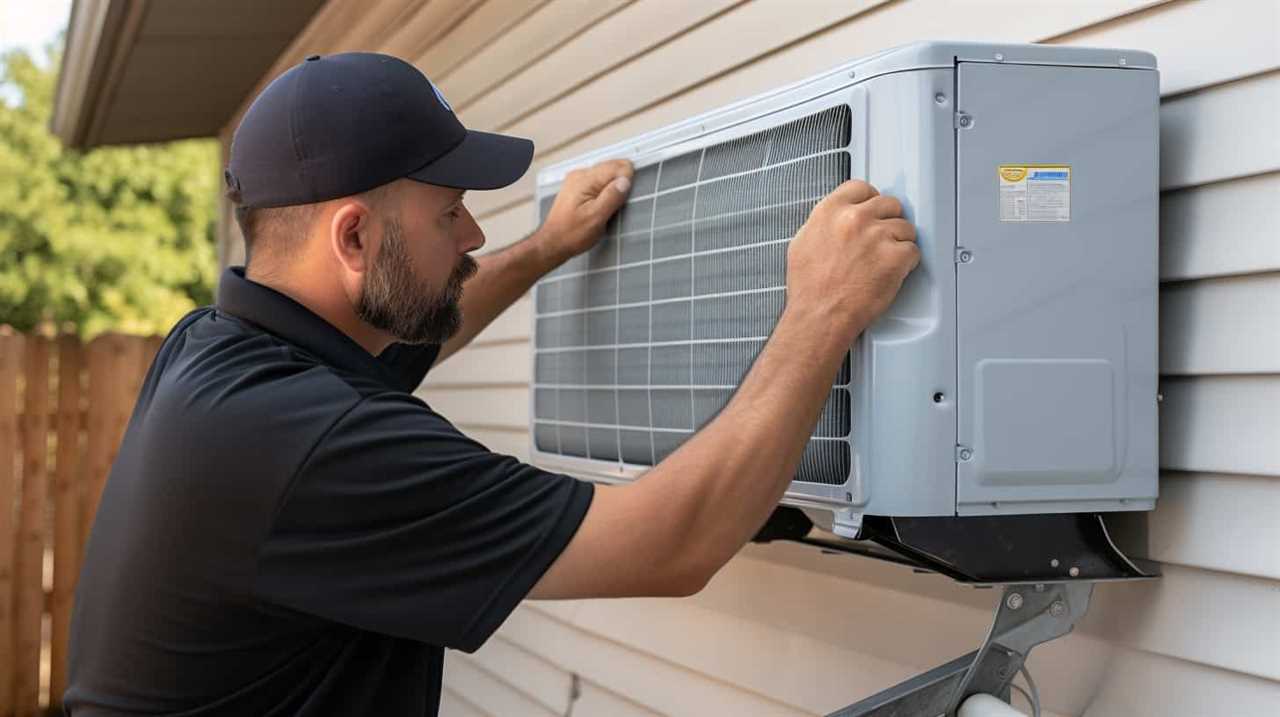
Do Heat Pumps Require Any Special Electrical Requirements or Modifications to My Home’s Electrical System?
Yes, heat pumps may require electrical modifications to ensure electrical compatibility and optimal energy efficiency. It is important to consult with a professional to assess your home’s electrical system and make any necessary adjustments.
How Do Cool Comfort Energy-Savvy Heat Pumps Reinvent Residential Heating?
How Do Cool Comfort Energy-Savvy Heat Pumps Reinvent Residential Heating? cool comfort heat pumps reinvent heating systems in residential spaces by efficiently using energy and providing a comfortable indoor environment. With innovative technology, these heat pumps can both cool and heat homes, allowing for year-round comfort. By minimizing energy consumption and maximizing efficiency, these heat pumps offer a sustainable and cost-effective solution for residential heating needs.
Conclusion
In conclusion, heat pumps are a highly efficient and cost-effective solution for residential heating. They work by extracting heat from the air or ground and transferring it into the home. By choosing the right heat pump for your home and properly maintaining it, you can enjoy significant energy savings and a comfortable living environment.
While there may be challenges with installation and maintenance, these can be overcome with proper planning and professional assistance. Heat pumps truly are the future of residential heating.

